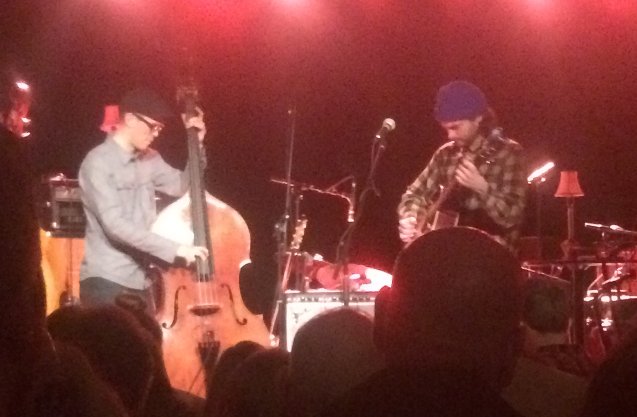Remember when I started applying for jobs in Madison, graduate degree and five years experience in hand, thinking how easy it would be to outshine sorry hopefuls who thought they had a chance? How quaint my résumé shined on twenty pound off-white sheets, cotton stranding imperfections. I was going to be a shoe-in, I tell you.
Then, an interview. No problem. Just charm ‘em. Didn’t work out? A fluke. Another one? Must be a superstar getting this one. A third? Maybe it’s a cultural thing, or maybe…
Ahhhh, maybe I don’t belong here, not good enough. Never was. Yeeeeesssssss, let the doubt shake me by the neck like the terrified chicken I am. Let it fester, let it rule. It’s a sweet feeling, because it’s a perfect explanation. I. Am. Not. Good. Enough.
As a writer, in this same damn town ten years later, it’s easy to look back on a not easy year of unemployment in Madison with health insured nostalgia, but I also made mistakes. Missteps. Faux pas, if you will, that probably made it a tad more difficult to land on my own two feet.
Madison is a Small. Fucking. Town. Small enough that, in a profession that requires putting words in a place where people read them — like, say, an internet website — it’s easy to discover who else does this thing. There aren’t a lot of us.
Today, if you put a garden hoe to my head and asked me who the best 20 writers in Madison are, in no particular order, I could do it. It’s a limited geographical area with a modest population, after all. Some of these colleagues have a ton of God Given Talent, some Hustle to No End, and most do both.
In fact, the city just lost one of them, Terry Devitt, UW–Madison’s head science writer, to retirement. His kicks can’t be filled, as they say, but there exists a small handful of people who could don different sneaks and take the university’s comms team to really cool places. I hope it happens.
So here’s the thing. The Madisonians on that list — the best of the best — are really obvious to me because of the silly fact that I measure myself against them. I am old enough and have done this long enough to know that I have a little bit of the things that make a person have word skills. With ten years of perspective, though, I can see now that growing doesn’t have a whole lot of context if you don’t know who else is putting notches on the door, too.
Mastering skills leads to fulfillment, so I say. And by knowing who can craft quality sentences in this place, I can pick up a new move now and then, and hopefully keep pace somewhere in the general vicinity of the pack.
See, now we’re doing a running metaphor.
I don’t call myself a runner, but I am a slow jogger. And when I pay money to slow jog a set distance against other slow joggers, I have a few rules to quantify a good Saturday morning on a trail: 1) don’t get injured; 2) finish the race; 3) don’t finish last.
Number 3 isn’t all that important at the beginning of the race, but by the end, I’m always glad when I did a little better than that one other guy. Is that vanity? Fine. But it’s also a small drive to hit the pedal a little harder on that next run home from work.
I’ve made conscious choices to not lead the pack — on the trail, and in the words game. I’m proud of those choices. Shit, maybe someday I‘ll make other choices. But that doesn’t keep me from looking up to the best scribes around here while still calling them my peers. Every once in awhile I read their work and can say, “hey, maybe I could write that good, too.”
But really the thing that brings me joy is knowing who those people are. Because if I can’t tell who’s good at what I do, why bother? This metropolis is growing, but still meager enough that we will inevitably be in competition for readers’ attention, and maybe for the same job.
Knowing who gives a shit enough to keep improving was the biggest hole I had in my skill set when I moved here. These days, I make it my business to know who’s the best. If I’m going to keep keeping up, I have to.
So, 30-year-old me, here’s a little advice: get the lay of the land. Find out who’s good at this stuff, find out why they’re good, and emulate it. Then, in ten years, write about it on a free blogging website on a Saturday night.
It’ll feel good.




